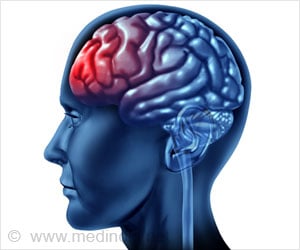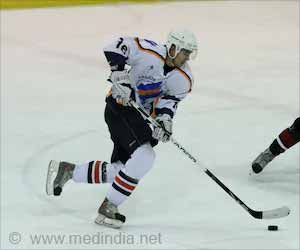
‘Scientists have introduced a cutting-edge approach and new clinical tool to manage sports-related concussions, which will measurably improve with more and more inclusive data. ’
Tweet it Now
Their study, published in the American College of Sports Medicine's journal, Medicine & Science in Sports & Exercise, can be used as the foundation for a decision support system that would aid clinicians in developing individualized treatment for injured athletes. This research also is part of a larger ongoing effort by the team to develop machine learning models to help diagnose, track and treat a variety of brain health issues. Using data from the National Athletic Treatment, Injury and Outcomes Network (NATION), an injury surveillance program on high school student-athletes, the researchers examined data on 2,004 concussion incidents in 22 sports, looking at where the injuries primarily occurred. They found that more than half of the concussions happened in American football. With this information, they created a new dataset of concussive injuries in football as well as other contact sports that included wrestling, field hockey and boys' and girls' basketball, soccer, and lacrosse. This new dataset included 922 football concussions and 689 concussions from other contact sports, totaling 1,611 concussion incidents from all contact sports. For the dataset of all contact sports, total number of symptoms reported per sports-related concussion incident ranged from zero to 17, with 55 percent of the student-athletes reporting five or more symptoms.
The researchers implemented a supervised machine learning-based modeling approach to predict recovery time of concussion-related symptoms within seven, 14 and 28 days. They examined the efficacy of 10 classification algorithms in building the prediction models, using the dataset representing three years of concussions suffered by these high school student-athletes in football and the other contact sports.
With the dataset showing that the most prevalent reported sports-related concussion symptom was a headache (94.9 percent), followed by dizziness (74.3 percent), and then difficulty concentrating (61.1 percent), the symptom-based prediction models demonstrated practical clinical value in estimating sport-related concussion recovery time. This information can be especially valuable to health care providers in concussion case management and patient care. Beyond clinical decision support, this insight also can help with planning academic accommodations and team needs. The researchers noted that total number of symptoms, sensitivity to noise or light, difficulty concentrating, insomnia, and balance issues have priority predictive value, indicating their likely important contributing role and utility in their models. In contrast, they did not find amnesia, hyperexcitability, loss of consciousness, or tinnitus to be relevant candidates for measurably facilitating top-performing models.
"It is really important to be able to promptly identify those athletes who are going to need more time to recover after incurring their concussion," said Bergeron. "The ability to predict recovery time using machine learning will help to augment an effective stratified approach to care. This also can help with realistic expectations of the student-athlete, as well as provide important insight and perspective for parents, coaches and teachers."
Advertisement
"This novel application of supervised machine learning to sport concussion epidemiology is an important step in advancing the approach in clinically managing a complex condition," said Stella Batalama, Ph.D., dean of FAU's College of Engineering and Computer Science. "Supervised machine learning has the potential to more effectively reveal meaningful patterns and potentially unique vital insights into the complex inter-dependent array of clinical determinants in anticipating concussion symptom recovery as well as myriad other aspects in managing concussions."
Advertisement









